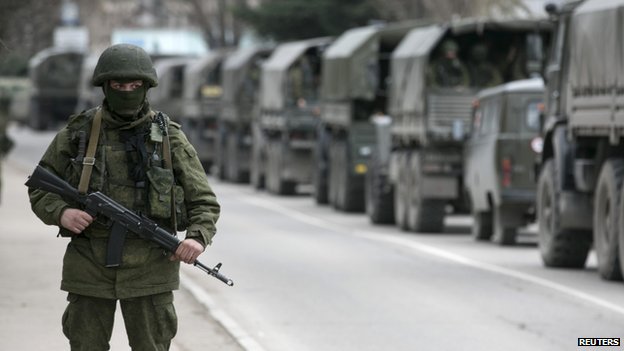Iryna Stelmakh
The article entitled, War in the East of Ukraine has been the leader in terms of clicks on Ukrainian Wikipedia for the last two months. Over 180 thousand views. Meanwhile the users have created an article on losses on both the side of Ukraine and Russia which contains information on the deceased. With the beginning of the events in the East of Ukraine, Ukrainian Wikipedia has become more militarized than ever, say its authors, and create military-themed articles almost every day.
War in the East of Ukraine (180,8 thousand views), The losses of the armed forces as a result of Russian invasion to Ukraine (146,7 thousand views), Aydar battalion losses (41,7 thousand views), Putin – khuilo! (41,6 thousand views) – this is the list of articles that have gotten the most views in August 2014 on Ukrainian Wikipedia. Because of the events in Ukraine, the global digital encyclopedia now includes hundreds of new articles, and articles on weaponry, territorial defense battalions and military conflicts have become newly popular. Only during August, 5 thousand new articles were created on Ukrainian Wikipedia. On average, 161 articles a day.
“So every 9 minutes, a new article is created, every 20 seconds, an edit is made, and every second, 24 pages are being viewed,” says Wikimedia founder and the most active author of Ukrainian Wikipedia Yury Peroganych.
Because of lack of data, one of the few sources for Russian internet users is the Ukrainian-language article entitles Citizens of the Russian Federation who died as a result of Russian invasion in Ukraine (2014). Citing media, social networks and other resources, it presents a list of names of the Russian servicemen, volunteers, journalists, who, under various circumstances, starting March 18, 2014, died on Ukrainian territory. At the moment this article was written, the list included over 70 names of Russian citizens.
War for editing
Publications on Wikipedia have multi-level moderation, which allows to avoid unverified articles or minimize the time of their publication. However, there is no such thing as objectivity here.
There is an editorial consensus, and Ukrainians find it difficult to influence this consensus, however, it is possible. For this, periodically, the Ukrainian Wiki-community organizes itself to prevent distortion of facts or violation of historical truth,” adds Yury Peroganych.
Ukrainian authors find they have to unite against distortion more frequently in the recent days. First and foremost because Ukrainians pay more mind to the Russian-language and not the Ukrainian-language Wikipedia, and there is more propaganda there, notes historian from the Mykola Gogol Nikhyn State University, author of over 2 thousand Ukrainian Wikipedia articles Oleksandr Zheliba.
“Russian editors are more aggressive, and I suspect that the special services are actively working there. They completely erase some terms. There was a sort of war for editing, when they renamed the Kyivan Rus into the ‘Ancient Russian State.’ So their segment of Wikipedia is very ideologized,” says he.
Oleksandr Zheliba also makes an example of the Boeing 777 crash, when on the next day after the catastrophe, the IP address of Russian TV and Radio Broadcasting company made an edit to the reticule on civil airplane crashes. First, a Ukrainian user noted that the plane was downed by “terrorists,” and the company replaced it with “Ukrainian servicemen.” A real fight was started by the Russian FSB in the German-language article on the Boeing crash. Throughout 20 minutes a Russian user made five attempts to change the word “Separatisten” (separatists) to “Rebellen” (rebels), and “Separatistenführer” (leader of the separatists) to “Aufständische Ministerpräsident” (rebel Prime Minister). Also, after the crash, unknown Moscow IP addresses made changes to the article on the technical characteristics of the Su-25 plane to accord them with unrealistic claims made by the Russian Defense Ministry, when they tried to imply that this Ukrainian storm jet downed the Boeing.
In order not to fall victim to the lies on Wikipedia, Ukrainian authors advise the users to first and foremost replace the Russian-language OS (mostly Microsoft Windows) with a Ukrainian one (this way search engines will first offer Ukrainian website links). Second, become Wikipedia authors themselves: in order to be the main source of information, Ukrainian articles have to be deeper, ground themselves in higher quality sources, especially in the cases when we are talking about Ukrainian history and current military action in Ukraine.
Source: Radio Liberty
Translated by Mariya Shcherbinina








